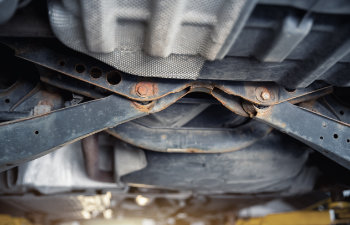
State vehicle lemon laws are designed to protect consumers against defective new vehicles. These laws vary from state to state, but most cover defects that affect a vehicle’s safety, value or use. One common question that arises is whether rust and corrosion are covered under these laws.
The answer is not so straightforward. While rust and corrosion can certainly affect a vehicle’s safety, value, and use, they are not always covered under state lemon laws. In general, lemon laws do not cover defects that are caused by normal wear and tear, or that are the result of the owner’s negligence or misuse of the vehicle.
Does Rust Impact Safety or Functionality?
In some states, rust and corrosion may be covered under lemon laws if they are severe enough to affect the vehicle’s safety or functionality. For example, if rust has weakened a vehicle’s frame or caused structural damage, it may be considered a safety defect that is covered under lemon laws. Some popular vehicles are known to have premature rust and corrosion problems that may qualify for a lemon law claim in your state. Some of these vehicles include:
However, in other states, rust and corrosion are explicitly excluded from lemon law coverage. Such laws would include language indicating “normal wear and tear, abuse, neglect or unauthorized modifications or alterations” are not covered. This would likely include rust and corrosion that are the result of normal wear and tear or neglect.
Ultimately, whether rust and corrosion are covered under state lemon laws depends on the specific laws of each state and the specific circumstances of each case. If you believe that your vehicle’s rust or corrosion issues are covered under your state’s lemon law, it is important to consult with an experienced lemon law attorney who can help you understand your rights and options.
Corroded Vehicles Under Warranty
In the most likely lemon law scenario, you would detect rust or corrosion on a vehicle still covered by the manufacturer’s warranty. For example, corroded electrical fittings or piping underneath the vehicle could pose a safety hazard or potential for failure. Or, rust around the glass or a sunroof could allow leaks to damage the vehicle interior. Premature rust or corrosion that harms the vehicle’s functionality or safety could have the potential for a legitimate lemon law claim, especially if the manufacturer refuses to address the issue.
While rust and corrosion can certainly affect a vehicle’s safety, value and use, whether they are covered under state lemon laws depends on the specific laws of each state and the specific circumstances of each case. If you have concerns about your vehicle’s rust or corrosion issues, take the quick online Lemon Larry assessment to see if your vehicle qualifies as a lemon. If so, we can connect you with a local Lemon Law Attorney in your state who can offer assistance with your next steps.








